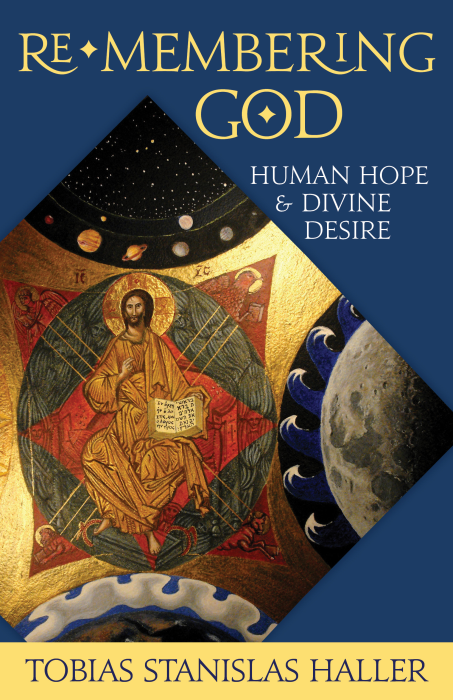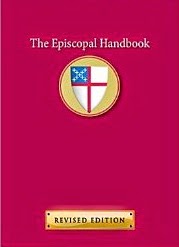Sic Transit Moralia Mundi
There is an old saying about the Roman Catholic Church that with them "everything is forbidden until it becomes mandatory."
Reflecting on the developments in moral theology in the Anglican — and Roman, and Jewish for that matter — traditions, it seems to me that the morality of any given act or behavior falls on a spectrum, and sometimes moves through it over time, sometimes one way and sometimes another.
- X is forbidden
- X is [contrary to, incompatible with, etc.] [Scripture, the teaching of the church, etc.]
- X falls below the [ideal] standard of behavior, and is not practiced by leaders
- X, while wrong in itself, is not as bad as Y, and may be tolerated in certain [pastoral, cultural, etc.] situations
- X, while permissible, is avoided by the truly virtuous
- X, while not required, is practiced by the truly virtuous
- X, while not required of all, is expected of leaders
- X is expected of all
- X is mandatory for all
Those who argue that morality is necessarily as fixed as the laws of the Medes and Persians are mistaken. And that is not only true in Anglicanism, but in many different traditions and, indeed, faiths.
Panta rhei, as the old philosopher Heraclitus put it. "Things change" — and that includes how we regard human behavior. If you have any doubt, check the ancient canons on clergy conduct, and tabulate the number of things that could have gotten you defrocked in the fifth century that wouldn't raise an eyebrow today.
Is there, in all this, a core morality that doesn't change? I think there is, and Jesus enunciated it, not as a "moral thing" in itself, but rather as a means by which to determine morality, as a way to judge one's own actions — judging others having been reserved to another authority. He said that the whole of the law and the prophets hung on this basic principle — "Do to others as you would be done by." (Matthew 7:12) I think we can take his word on it.
Tobias Haller BSG








12 comments:
To the contrary are the eloquent words of that wonderful Anglican, Sir Thomas Browne:
"Live by old Ethicks and the classical Rules of Honesty. Put no new names or notions upon Authentick Virtues & Vices. Think not that Morality is Ambulatory; that Vices in one age are not Vices in another; or that Virtues, which are under the everlasting Seal of right Reason, may be Stamped by Opinion. And therefore though vicious times invert the opinions of things, and set up a new Ethicks against Virtue, yet hold thou unto old Morality; & rather than follow a multitude to do evil, stand like Pompey's Pillar conspicuous by thy self, and single in Integrity."
Wonderful words, but, sadly, wrong. Demonstrably so. At least as far as Jesus was concerned. I will take his advice over the Classicists, or Sir Thomas. I should have thought he was rather clear about things virtuous "then and now..."
There is an old saying about the Roman Catholic Church that with them "everything is forbidden until it becomes mandatory."
That's probably because their ethics are less "Catholic" than Roman.
Rick, are Thomas Browne's words meant to tease, or do you see them as words to live by?
Actually, Heraclitus's "Panta rhea" is perhaps better translated as "All things flow" -- and I love the implications of that because it implies an on-going current of change, a kind of liquid, river-like, ever natural process.
And as any educated person knows, most assuredly morality changes as cultures change, as new insights arise, as new depths are plumbed, new implications are discovered, and new knowledge gained. And, I think that the almost total loss of classical education means that relatively few people today really "know" the past and most are also too young to remember even some of the massive changes in morality just my own 3/4 century of life. For instance, how many can remember the days when a divorcee was considered just short of a harlot?
Back in 1874 the House of Bishops tried to initiate a resolution at General. Convention requiring that Episcopal clergy be bound by the English Canon Law of 1640 (no candles, no vested choirs, no eucharistic vestments, etc., etc. -- i.e., no changes!)? James DeKoven (who DID have a classical education and DID know the past) reminded the House of Deputies that the Canon Law of 1640 also required that clergy wear a black night cap! Just one man's own clear knowledge of the past showed how silly the effort was to stop change.
Even classical Moral Theology is seldom taught today -- but anyone even slightly versed in that extremely ancient, traditional, and catholic discipline knows the complicated tangle of determining the morality of even the simplest act: intention, circumstance, effects, options, degree of free will, etc., etc., etc. Black-and-white has never historically been the Christian model for the determination of morality.
And its simplest expression of "Do to others as you would be done by" - as you point out - is the core of virtually all human morality of whatever religious flavor.
I remember a very holy priest and confessor who, on that very basis, made it a point to perform himself every penance which he assigned to a penitent.
Thanks, Fr J-J for the further illumination. Of course "flows" is a more accurate translation, but I want to avoid the sense of something floating downstream. The view of Heraclitus (as I understand it) is more the stream itself flowing, and yet remaining a stream. This may be related to the concept of transmigration, the Pythagorean concept that informed some of Heraclitus own thinking. It might also relate to our modern concept of homeostasis: whereby things remain what they are even though their substance changes -- I'm fond of pointing out that the saying "I'm not the man I used to be" is quite literally true; our material bodies are replaced every few years, bit by bit.
The same can be said for morality -- its details change, but there is always some overriding ethos; of course that changes too, but perhaps more slowly, so that only a historian with the long view recognizes the more tectonic shifts.
"For instance, how many can remember the days when a divorcee was considered just short of a harlot?"
I was under the impression that Jesus himself said something about divorce and adultery. Do we consider that overruled because of our greater ease with divorce?
I have to say, I think you and Toby are confusing mores with morals. Every age has its conventional behavior, its own feeling for which offenses are more or less acceptable.
That's a far cry from asserting that right and wrong change with the times.
No, Rick, I mean morals, as in moral theology. To take the matter of divorce, though I did not raise it: I do not think we have greater ease with divorce than was the case in Jesus's time -- but I also very much doubt if many people consider a person who has remarried after divorce to be guilty of adultery. The fact that the Rota provides for easy annulments is I think very widely recognized as an accommodation, reflective of a very real change in the understanding of marriage. (I doubt very much that a scholastic moralist would support the now-common rationale used by the Rota for granting an annulment -- that the very act of seeking a divorce must indicate defective intent, and ergo, no marriage exists. Oh, and that'll be $1,200.)
Let us take just one Additional example: celibacy. Within rabbinic Judaism alone (if we include Jesus and Paul as members of that movement, which I think we should) there is a wide range of opinion on its moral status. Celibacy is anciently considered contrary to the first commandment; to be unmarried is to neglect of an important duty in accord with positive law. So important is marriage and procreation under the Jewish law that all sorts of provisions are made to ensure it takes place-- provisions overturned later by others -- including divorce of an infertile spouse and polygamy (both in the case of infertility and decease before fathering a child). This is not a question of more or less but of, as I said in my original note, moving from forbidden to mandatory. Celibacy, once seen as a grave fault and violation of divine law (and bearing its own curse in itself in the form of childlessness) came to be seen as a high virtue, and in some cases a requirement (first for bishops then all presbyters). What was forbidden became mandatory.
Another example is the so-called natural or rhythm method of family planning. (Or whatever euphemism Rome calls it by these days.) For a man to have sexual congress with his wife during this period of her cycle was considered among the most serious of biblical crimes, and was so considered in the early church.
I could go on and cite the usual catalogue of usury, slavery, the marriage of widows and widowers -- but you know all of these, or ought to. You just don't want to apply your knowledge of what is to confront what in your more idealistic moments you thing ought to be. You are trying to pretend there is some seamless garment where in fact there is a patchwork quilt.
So, yes, right and wrong do change with the times.
Is there a book that you would recommend that makes this argument well? It is all well and good to provide individual examples, but how is the theory articulated? If one accepts the argument that all moral law is transitory, then how can one escape the conclusion that all things are permissible? But perhaps I am revealing myself as a hopeless Roman.
I do recall in my ecclesiology class that the instructor assured us that when Rome finally permits the ordination of women, in whatever century that may be, that the decree will begin with the words: "As we have constantly taught...."
Dear Sebastian,
I didn't mean to imply that "all moral law is transitory" -- as I clearly believe there is a core for moral behavior that is constant, and is based on the divine image in humanity.
I think the best book on the general theme of change in the church remains Cardinal Newman's Essay on the Development of Doctrine. As an historian, he noted that it is absurd to stand by a claim like the Vincentian Canon, since almost nothing has been believe by all, at all times, everywhere. Newman, of course, came to see the Roman magisterium as the best way to preserve and govern the process of development, seeing it as the custodian of this process.
It is, of course, in particular cases, always helpful simply to read church history, or the writings of early moral theologians. To take one example, a major obsession of certain early fathers was women wearing too much makeup. The early Christian invective against male homoexuality was directed largely at the "effeminate" who similarly painted themselves and acted like loose women.
On your last note, there is an interesting comment in Inter Insignores, if I recall correctly, that said, "It is well known that in solemn teaching infallibility affects the doctrinal affirmation, not the arguments intended to explain it. Thus the doctrinal chapters of the Council of Trent contain certain processes of reasoning that today no longer seem to hold."
Isn't it "panta rhei"?
That is my recollection anyway and http://tiny.cc/hS23K would seem to confirm it...
Thanks for the correction, badman. I'd remembered it with an "a" -- which is clearly a common error. I've amended the post accordingly.
Post a Comment